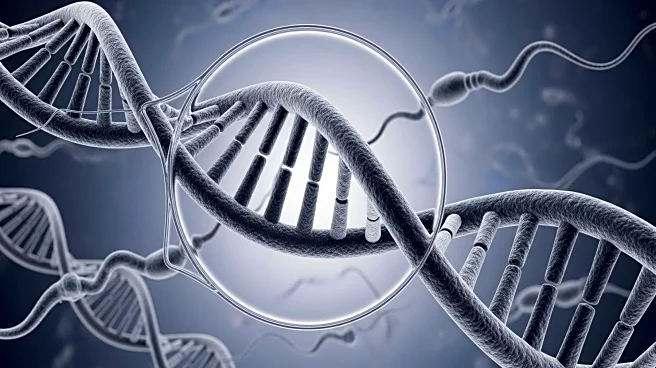What's Happening?
Researchers at Harvard Medical School have discovered that genetic mutations in sperm, known as clonal expansions, are more common than previously thought. These mutations, which can be harmful when passed
to offspring, are linked to single-gene diseases, including neurodevelopmental disorders. The study, published in Nature, reveals that clonal expansions occur when mutations in sperm stem cells confer a growth advantage, leading to large quantities of genetically identical mature cells. The research highlights the role of evolutionary forces in shaping genetic mutations and their impact on human health.
Why It's Important?
The findings have significant implications for understanding genetic diseases and improving genetic screening tests for newborns. Clonal expansions in sperm can lead to rare genetic disorders in offspring, even if parents do not carry the mutation. This research could enhance the accuracy of genetic testing and provide insights into the prevalence of certain diseases. The study also contributes to the broader understanding of how genetic mutations can affect population health and the evolutionary dynamics of human genetics.
What's Next?
The research team plans to identify additional genes that drive clonal expansions in sperm and explore their impact on single-gene diseases. They aim to incorporate this information into genetic screening tests for newborns and study the biological roles of the identified genes. The team will also develop evolutionary models to better understand the process of clonal expansions. These efforts could lead to improved diagnostic tools and preventive measures for genetic disorders.
Beyond the Headlines
The study raises ethical considerations regarding genetic screening and the potential for discrimination based on genetic predispositions. It also highlights the cultural and societal implications of genetic research, including privacy concerns and the need for informed consent. Long-term, the research could influence public policy on genetic testing and healthcare resource allocation, as well as spark discussions on the balance between scientific advancement and ethical responsibility.









